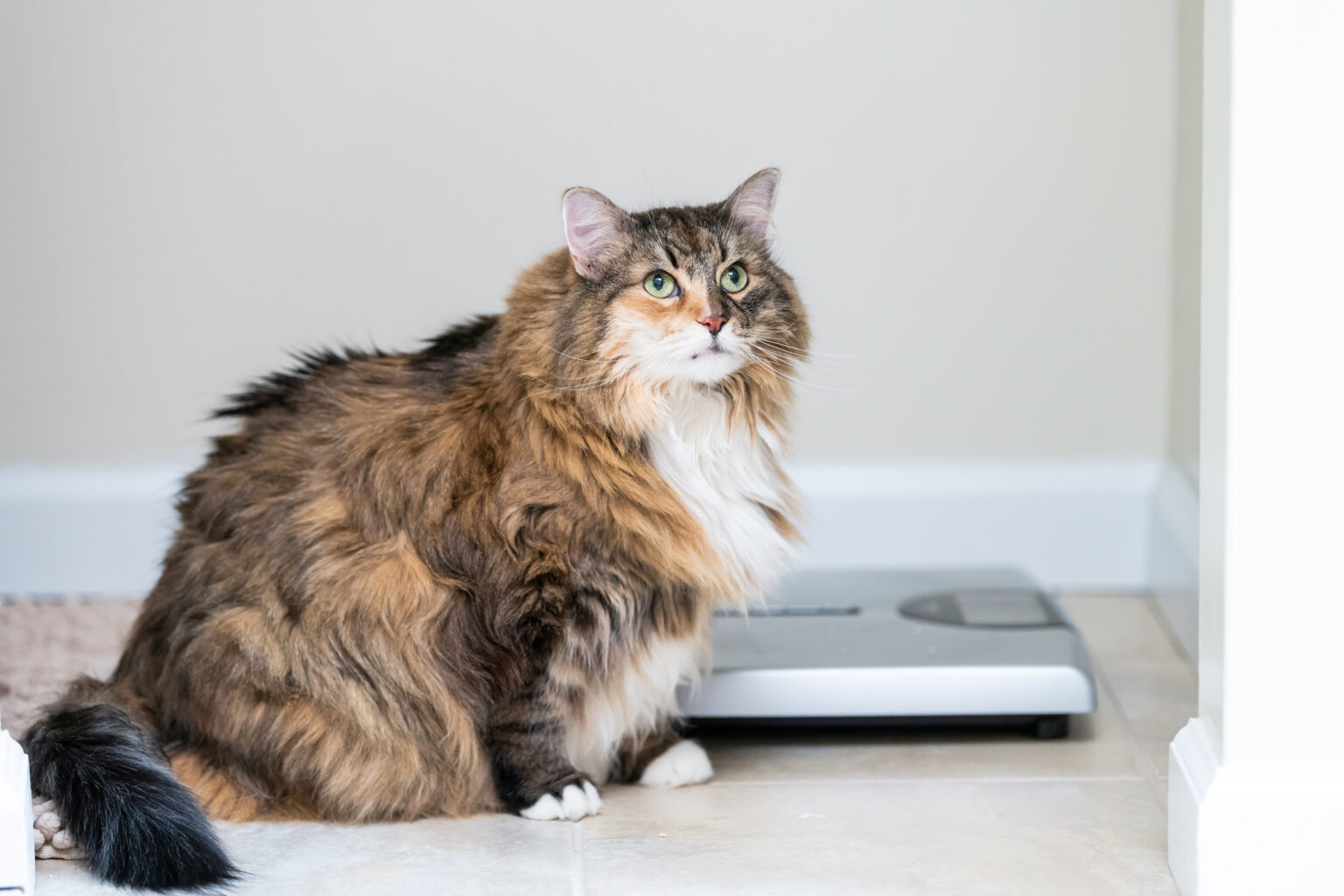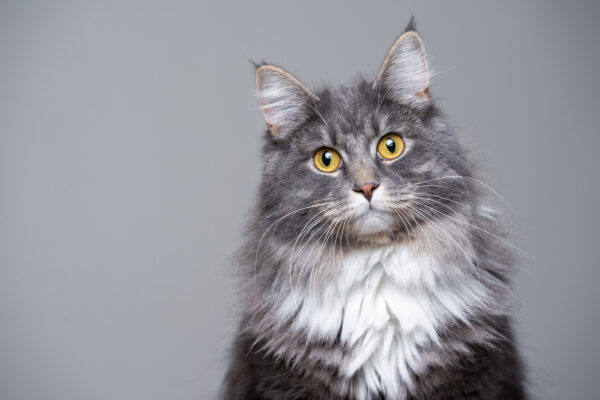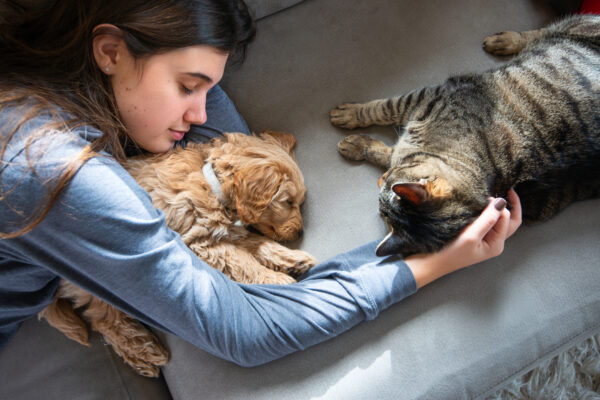It’s estimated that around 47 per cent of cats in the UK are overweight or obese – so if you’ve got a fat cat on your hands, you’re not alone. But don’t fret – with a wealth of hands-on experience, our resident vet has rounded up 5 ways to help your feline friend shed a few pounds.
1. Feed your cat the correct amount of food
It may be convenient, but measuring out their cat food by eye can result in overfeeding – very counter-productive when it comes to weight loss! Different types of cat food vary in shape and density, meaning a guess – no matter how educated – isn’t all that accurate. Weighing their cat food with a kitchen scale, instead, eliminates the risk of overestimating. If you have more than one feline friend, microchip cat feeders can help to prevent your cats from sharing their meals. Remember – cats eat out of boredom, too! It also might be worth checking that a friendly neighbour isn’t feeding your cat when they’re out of the house. Attaching a note to their cat collar or ID tag with a polite request should do the trick.
2. Match their cat diet to their lifestyle
It’s important to feed domestic cats the right type of cat food – especially when it comes to weight loss. Are they an older cat? Or do they still require a kitten diet? Do they spend a lot of time outdoors? Or are they more of a homebody? Are they full of energy? Or are they on the lazier side? Are they neutered? Your cat’s lifestyle might dictate a specific cat food, be that dry food, senior food, kitten food or something else. Before changing up their diet, it’s important to check in with your vet to discuss the best cat food for your feline friend. Take a peek at our wide range of cat food – including Hill’s Science diet cat food and Lily’s Kitchen cat food, to name a few.
3. Change your approach to cat treats
Just like us humans, our feline friends can be prone to snaccidents every now and again – especially for bored cats. As sweet at your cat’s tooth might be, cutting back on their treats is a wise move when it comes to weight loss. Don’t think that that means you have to scrap their cat treats entirely! Treats are still perfectly acceptable within moderation. The key is to select cat treats that are high in value and quality. Remember, quality over quantity!
4. Make sure they get enough exercise
Whether yours is an outdoor cat that takes a daily stroll or an indoor cat that snoozes from dawn to dusk, a regular bout of exercise is vital for all of our feline friends. A common query for cat owners is “how can I get my cats to lose weight around the house?” Well, cat toys are a great tool for getting your kitty on their feet and moving. From interactive cat toys, such as laser pens to teaser toys, such as wands, playing with your cat – inside or outside – is a recommended cat weight loss technique. Plus, it’s a great way to spend some quality time with your feline friend!
5. Visit your vet!
Like all concerns you have about your cat, you should always talk to your vet. You might have questions – such as “how long does it take for a cat to lose weight?” – that only your vet can answer. They’ll be able to rule out any diseases contributing to your cat’s weight – such as arthritis, making them less active – or any dental problems that could be making them a fussy eater. You can also enquire about free weight clinics to get an accurate, up-to-date weight and proper assessment of body condition. Ideally your cat should have a weight check at least every 6 months, as weight gain (or loss!) may not be noticed at home. It’s difficult for your cat to lose weight if they’ve gained a lot over the space of a year or if they have developed progressive diseases that are only noticed months later.
Our articles are not a replacement for face-to-face vet advice. It’s important to consult with your vet on a regular basis to raise any pet concerns that you may have.



